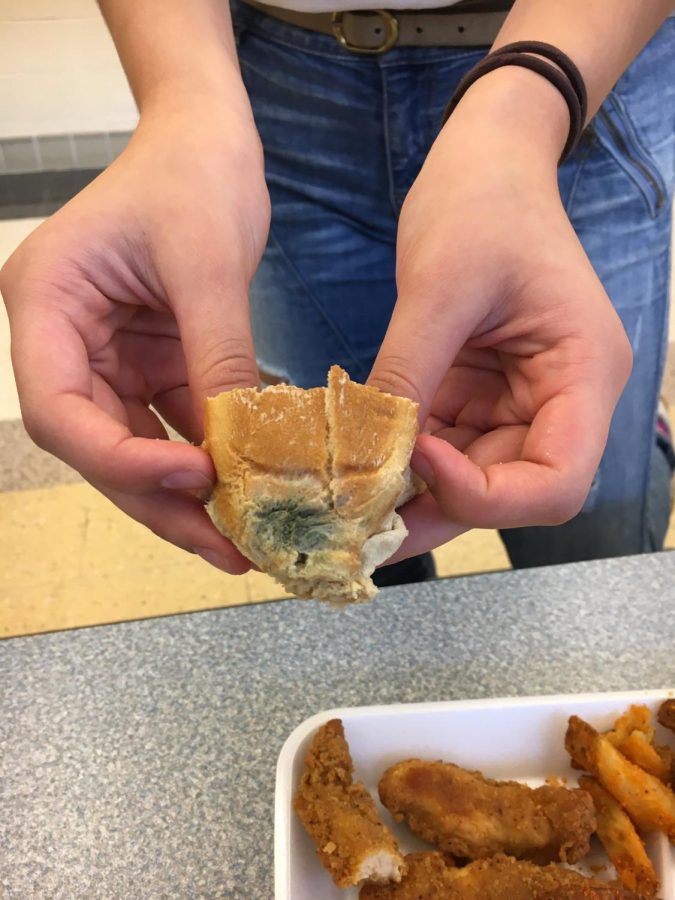“Instating Better Food Examinations”
December 11, 2017
Lunch is one of the most important meals of the day, for it is the bridge between breakfast and dinner. It provides rejuvenating strength to continue through the day. In school, during the three lunch breaks, the lunch ladies work to provide the meals for the students. Sanitation and purity of food are both imperative parts of keeping the students safe and healthy in the school environment. Receiving a meal that has a major defection in it, such as mold, poses many questions towards the lunch ladies and the school’s lunch policy– questioning their surveillance of the meals prior to distributing them to the students.
One student at Oakdale, who wanted to remain anonymous, found a piece of moldy expired bread on her lunch tray a week ago. She claims she was ‘emotionally scarred’ from almost consuming the bacteria-infested bread.
“It was absolutely disgusting,” she groans. “I think there should be rules for how long you can keep food and reuse it the next day.”
She then went on to explain: “I think students that get those lunches should be refunded and given a free lunch pass or something, considering they could have gotten sick.”
Research over the years has proved that it takes a minimum of twelve days for bread to mold. Microbiologists then go on to say if you eat a bread slice inoculated with stachybotrys, a genus of molds, at the very least, it will battle with your respiratory system. But it is a possibility to get irritations in the mouth, throat, and nose. If it is a high enough concentration you can go into shock, hemorrhaging, or necrosis.
And then, there was a second incident.
Sophie Krach, a senior at Oakdale, was photographing the evidence of the case of moldy bread when fellow student Isabella, who wanted to conceal her surname, turned her lunch bread over only to see a giant blotch of mold on the bottom.
“Fruits, vegetables, and salads should always be fresh,” Krach boldly states, “and food should be checked daily to make sure there’s no mold, and that the food isn’t stale.”
The policy should be strictly enforced considering it takes only a few days for bread to mold. Students depend on their schools for healthy, freshly-given lunches. Sometimes the cafeteria meals are the only lunches the students will have that day due to financial struggles. The lunches must be fully satisfying and safe to consume. Considering the damage hazardous foods can do, policies and regulations should be changed and updated.
When admin has been made aware of this concern, a free lunch has been provided. Students should be compensated with a free lunch for being given defective lunches by the cafeteria. Depending upon the situation, just the item has been replaced.
What the school’s faculty decide to do about this is entirely up to them, considering the safety and health of the students is what matters most above anything else. It is immoral of those who are responsible for the students to allow this kind of danger to even enter into the hands of the students as that in itself is a huge violation of student safety.





























